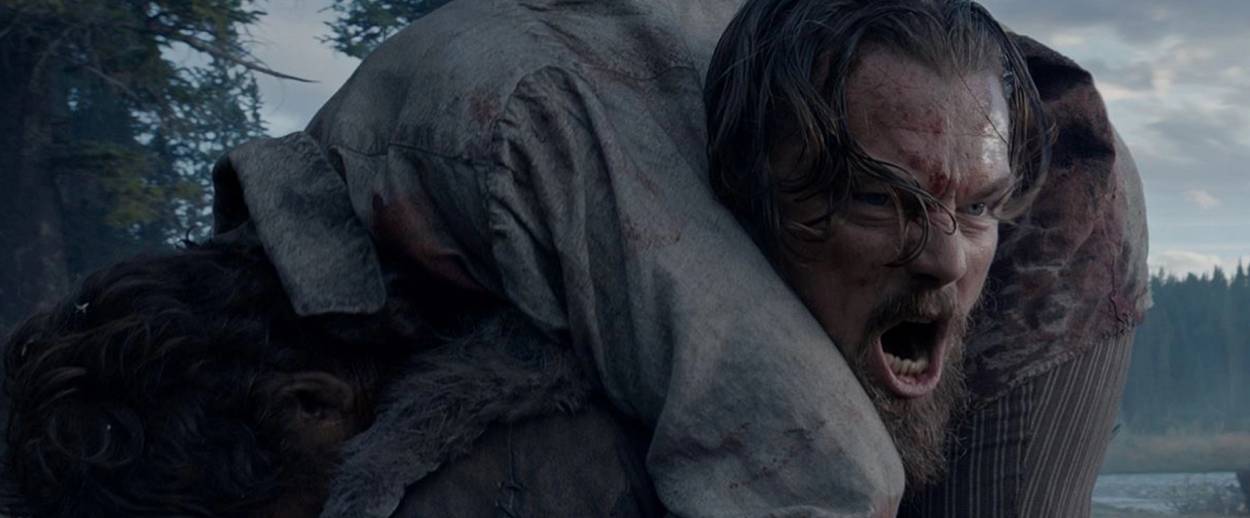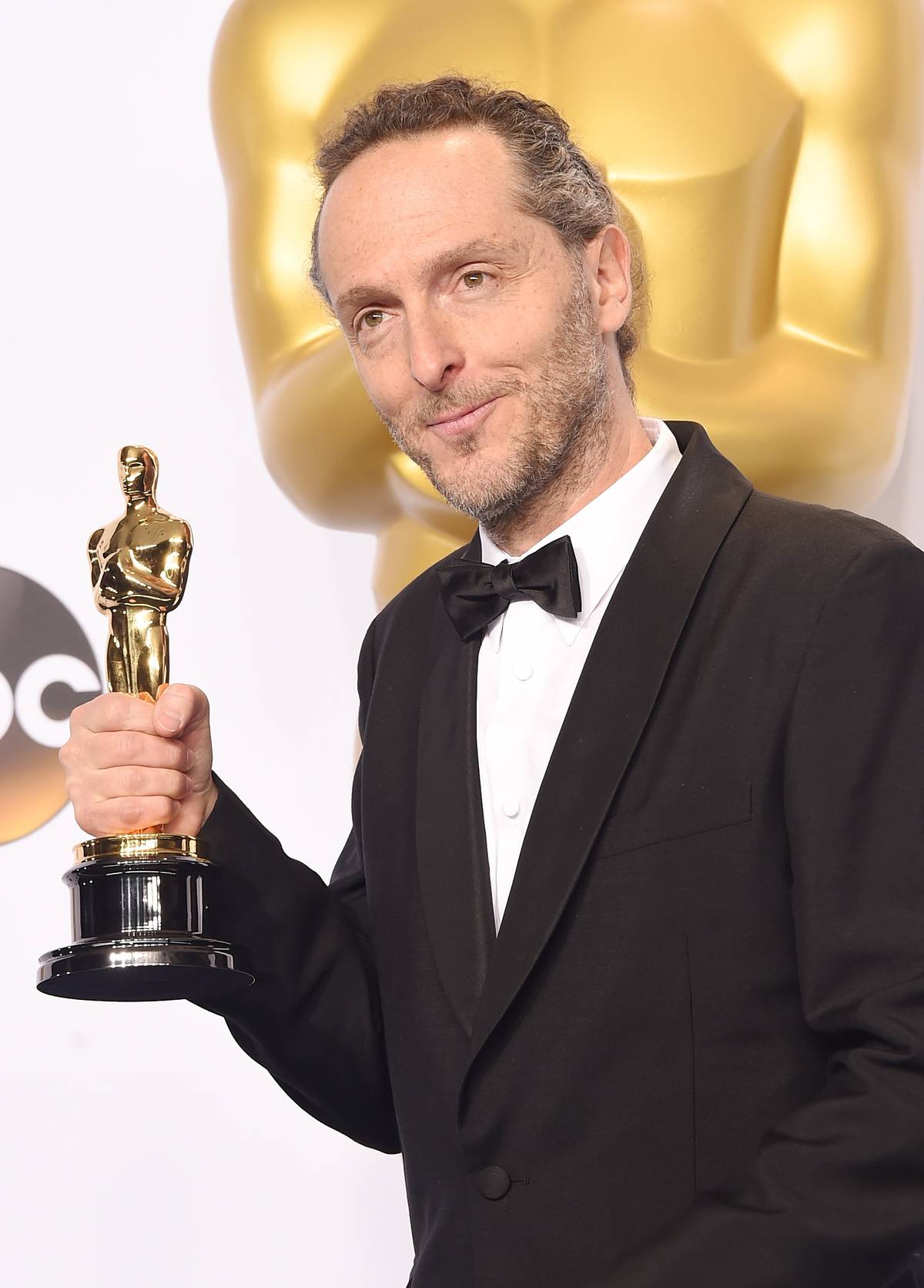Mexican Cinematographer Emmanuel Lubezki Hits His Stride
Lubezki, who often partners with Alejandro González Iñárritu and Alfonso Cuarón, is up for a third straight Oscar for ‘The Revenant’




Movie makers from Mexico are on a hot streak. Director Alejandro González Iñárritu’s The Revenant, which is nominated for 11 Academy Awards, has already won three Golden Globes, including for Best Motion Picture (drama). Two years ago, Alfonso Cuarón’s outer space thriller Gravity, which the Mexico City native both wrote and directed, took home seven Oscars. But the unsung mastermind behind both of these successes is Jewish-Mexican cinematographer Emmanuel Lubezki Morgenstern, who goes simply by Emmanuel Lubezki, or “El Chivo” (The Goat). (In his acceptance speech for the best actor Golden Globe, Leonardo DiCaprio thanked “Chivo” directly.)

Theater, it appears, runs through Lubezki’s veins. His grandmother, who escaped Russia during the Bolshevik Revolution, wanted to settle in Hollywood but ended up staying Mexico City, where she met her husband in a Yiddish theatre group. Lubezki himself received his first camera when he was 10 years old, and after High School chose to study film at Mexico’s prestigious Centro Universitario de Estudios Cinematográficos (CUEC) where he met Iñárritu and Cuarón.
Lubezki, 52, has worked with a number of acclaimed directors, including Martin Scorsese, the Coen Brothers, Michael Mann, and Terrence Malick. Recently, Lubezki received consecutive Academy Awards for helming the cinematography of Gravity and Birdman. This year, Lubezki is nominated for The Revenant.
Lubezki is known for his long shots, particularly complex logistical challenges that call for added and careful stage direction. There can be no cut and every last detail must be coordinated beforehand. In Birdman, the entire movie can seem like one continuous shot (or, single shot), but, according to Lubezki, the longest take was only 10 minutes long. Still, the challenges were many: “We were moving lights; we were moving diffusions,” he told The Hollywood Reporter. “Every time you see a shot, there were eight people moving with me. It was like a ballet.”
Similar instances of cinematography can be seen in the first fifteen minutes of Gravity, which consists of a continuous, awe-inspiring, dialogue between two astronauts floating around space with the earth as a background. This vertiginous scene achieves the illusion of total immersion in a beautiful environment where the main character must fight to stay alive.
Lubezki inaugurated his particular style in the dystopian action film Children of Men, which was also directed by Cuarón. (Cuarón and Lubezki also worked together on 2001’s Y Tu Mamá También) The movie, set in a future London plagued by terrorism and migration issues, acquires a documentary-like aura due to the experience of seeing events unfolding in “real time.” In one scene, in order to shoot a car getting attacked in the woods, Lubezki had to create a vehicle that would support him standing in the rooftop with two other men. The camera, a robotic structure that would hang from above, could film the conversation between five people within the car while being able to turn 360 degrees to focus on the approaching carjackers, thus creating a claustrophobic atmosphere in which escape seems impossible.
Though The Revenant’s plot can, at times, be bland, the beauty of the movie is undeniable. It’s a visual epic, a poetic masterpiece of vast landscapes and deserted wilderness. In it we find, once again, Lubezki’s predilection for long shots, only this time they are deployed to convey a sense of borderland violence. One could dismiss the use of this resource as the old trick-in-the-box for El Chivo, except for the fact that Lubezki shot them in sub-zero conditions in Canada and Argentina and using natural light. In an interview with Deadline, Lubezki said: “We were shooting in a very high latitude and the day became very short. The sun travels very low to the horizon and sometimes we were in valleys or in places where the sun just hides even before sunset… A normal day of working in Burbank is 14 hours, sometimes more. On The Revenant sometimes it was eight hours, but we were shooting only five. So they were short days but they were very strenuous because of the weather. And it was very dark.”
If Lubezki wins at the Oscars Sunday night, he will enter a select group of Cinematographers who have won three Academy Awards (Vittorio Storaro, Arthur Miller, and Winton Hoch), and he’d deserve it. The kudos cannot go only to Iñarritu and Cuarón. Either way, Mexican cinema is entering into a second Golden Age, following in the footsteps of Emilio “El Indio” Fernández and Luis Buñuel.
Previous: 10 Can’t-Miss Films of 2015
Alan Grabinsky is a freelance writer and journalist based in Mexico City, covering Jewish life and urban issues for international media.